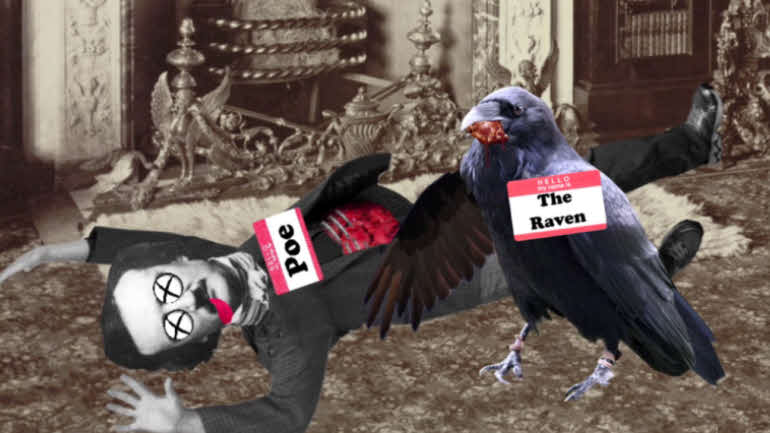ShmoopTube
Where Monty Python meets your 10th grade teacher.
Search Thousands of Shmoop Videos
Courses Videos 906 videos
What do you get when the guy who wrote “The Raven” makes a serious effort to write in verse? Poe-try… Now, when you’ve detached your eyes f...
Incidents in the Life of a Slave Girl, abridged. Ready? Go.
Emily Dickinson: Along with Van Gogh, proof that you’re never really famous until you’re dead.
Finance: What's the Difference Between Mutual Funds and Index Funds? 121 Views
Share It!
Description:
What is the difference between mutual funds and index funds? Mutual funds are professionally managed. Those investors trade shares and realize taxable gains. They also charge something like five times as much the fee of an index fund. Index funds comprise just a pre-selected basket of stocks, unmanaged, which just sit around and grow in a basket for a (large) fee.
- Social Studies / Finance
- Finance / Financial Responsibility
- Life Skills / Personal Finance
- Finance / Finance Definitions
- Life Skills / Finance Definitions
- Finance / Personal Finance
- Courses / Finance Concepts
- Subjects / Finance and Economics
- Finance and Economics / Terms and Concepts
- Terms and Concepts / Ethics/Morals
- Terms and Concepts / Accounting
- Terms and Concepts / Bonds
- Terms and Concepts / Credit
- Terms and Concepts / Derivatives
- Terms and Concepts / Econ
- Terms and Concepts / Education
- Terms and Concepts / Index Funds
- Terms and Concepts / Insurance
- Terms and Concepts / Investing
- Terms and Concepts / IPO
- Terms and Concepts / Managed Funds
- Terms and Concepts / Metrics
- Terms and Concepts / Mortgage
- Terms and Concepts / Mutual Funds
- Terms and Concepts / Real Estate
- Terms and Concepts / Regulations
- Terms and Concepts / Stocks
- Terms and Concepts / Trading
- College and Career / Personal Finance
Transcript
- 00:00
And finance allah shmoop what's the difference between mutual funds
- 00:05
and index funds The answer this guy or well this
- 00:10
team what do they do They manage the mutual fund
- 00:15
mutually together You know what nemo They make bets on
- 00:19
apple and amazon in crotchless tuxedo pants Dot com will
Full Transcript
- 00:23
these bets or into teligent investments In the parlance of
- 00:26
the industry our elements oven actively managed fund The mutual
- 00:31
fund is active in that it buys and sells hoping
- 00:35
to be smarter than the market and find areas you
- 00:38
know where they're inefficiencies where investors are throwing out the
- 00:41
baby with the bath water so that they buy the
- 00:44
shares here a twelve bucks and hope to sell them
- 00:47
if they hit thirty bucks in two years when the
- 00:49
new products get released and people are going absolutely bonkers
- 00:53
for self velcro ing neckties or whatever and index generally
- 00:57
stands pat on the hand It's dealt throughout the course
- 01:00
of the year making only small tweaks to invested amount
- 01:03
so that the fund itself conforms to the structure or
- 01:06
rules it set out when it was created But there
- 01:10
are a few vital and insidious differences that should make
- 01:13
investors today very wary about investing in mutual funds or
- 01:17
any actively managed fund When mutual funds first became popular
- 01:21
the investing marketplace was kind of the wild wild west
- 01:24
that was the nineteen fifties and sixties and a savvy
- 01:27
fund manager could beat the market by five and even
- 01:30
twenty percent per year year over year It was kind
- 01:33
of a golden age of mutual funds and money flowed
- 01:36
into them But like all good things this market wrinkle
- 01:39
easy winds and the investing world had to come to
- 01:42
an end Why competition when there were only a few
- 01:46
mutual funds out there and a few private investors it
- 01:49
was relatively easy to identify baby bathwater things you know
- 01:53
diamonds in the rough Today there are literally thousands of
- 01:57
mutual funds With such massive competition performance relative to the
- 02:01
market has lagged dramatic In fact over a typical seven
- 02:05
to ten year holding period only a very small handful
- 02:08
of mutual funds beat the typical index fund investing in
- 02:11
the same or analogous areas of stocks or bonds It's
- 02:15
like one in twenty ever really beat the market and
- 02:18
it gets worse Mutual funds charge relatively large fees compared
- 02:21
With index funds whereas a typical index fund might charge
- 02:24
twenty basis points to manage your money that is twenty
- 02:27
cents for every hundred bucks you have with them for
- 02:30
year The analogous mutual fund My charge One percent or
- 02:34
more that's five times surprise for demonstrably no better investment
- 02:38
results and wait It gets even worse Mutual funds trade
- 02:42
stocks and bonds and other securities index funds rarely trade
- 02:46
or if they do it's a very small amount of
- 02:47
trading around the margin keeping index in compliance with its
- 02:50
legal charter But many mutual funds have turn over the
- 02:54
apple variety of like fifty eighty or even one hundred
- 02:57
percent Turn over means that a fund has sold the
- 03:00
stock to realize a taxable gain You know book a
- 03:04
profit by taking cash from selling the stock or to
- 03:07
realize a loss sometimes as well we'll each time of
- 03:10
fund transact It pays a commission to our friendly excellent
- 03:14
golf skilled brokers but more painful to most investors is
- 03:18
that in transacting the fund realizes taxable game So what
- 03:22
does that mean Well here's the math If your mutual
- 03:24
fund is up twelve percent given year when the market's
- 03:26
up ten percent it would be an absolute top of
- 03:29
the pyramid performance here For the fun of beating the
- 03:31
market by two hundred basis points would likely mean that
- 03:34
mutual fund was in the top forty right up there
- 03:37
with rina's latest it single So what is that awesome
- 03:41
performance after tax for the mutual fund Well if the
- 03:44
fund had traded like the typical one it would have
- 03:47
had turnover of about sixty percent of its assets and
- 03:50
half of those sales would get ordinary income tax treatment
- 03:53
think high rates of something like forty percent with federal
- 03:56
and state taxes combined for most and long term gain
- 03:59
of twenty percent for the rest Well the wealthy pay
- 04:02
higher taxes so we're rounding down the numbers here even
- 04:04
being conservative So if half of the sixty percent or
- 04:07
thirty percent of the gain of twelve percent which is
- 04:09
around four percent his tax at forty percent then take
- 04:12
away one point six percent from the performance to get
- 04:14
an after tax net result number Then after another thirty
- 04:17
percent tax at the long term gain rate of twenty
- 04:20
percent you'd have take away another point six percent so
- 04:22
in total you'd have to subtract one point six plus
- 04:25
point six or two point two percent from the twelve
- 04:27
percent humongous rock star year to net nine point eight
- 04:30
percent in after tax returns Nope not very exciting relative
- 04:34
to that index fund And yes there are differences here
- 04:37
even important ones But the bottom line is that if
- 04:39
a huge performance top two percent fun has results Not
- 04:42
much better and or maybe worse than just a basic
- 04:45
index funds Why does anyone invest in mutual funds anymore 00:04:49.487 --> [endTime] Well this guy
Related Videos
GED Social Studies 1.1 Civics and Government
What is bankruptcy? Deadbeats who can't pay their bills declare bankruptcy. Either they borrowed too much money, or the business fell apart. They t...
What's a dividend? At will, the board of directors can pay a dividend on common stock. Usually, that payout is some percentage less than 100 of ear...
How are risk and reward related? Take more risk, expect more reward. A lottery ticket might be worth a billion dollars, but if the odds are one in...




































































































